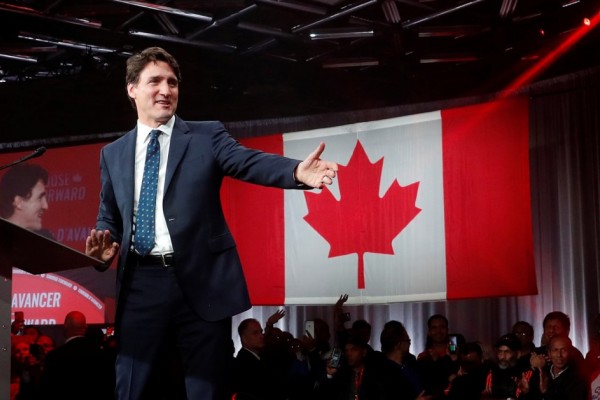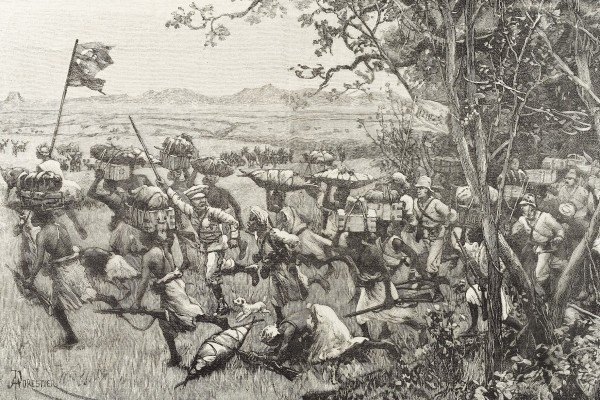Unwelcome election

Canadian Prime Minister Stephen Harper. Photo by Rob Romard/Flickr.
Hostility to electoral democracy and who do we think of? These days its Omar Gadhafi of Libya, Laurent Gbagbo of Cote d’Ivoire or, if you are really daring, maybe the Saudi royal family. But the discourse of our current election campaign here in Canada should give us pause.
With their incantations against another ‘costly’ and ‘unnecessary’ election, shouldn’t we be seeing the Harper Conservatives as potential entrants into this hall of infamy. To hear them you would wonder about their commitment to this most basic of democratic safeguards. Their underlying view seems to be that government needs to be run more like a business and, after all, who gets to elect a corporate CEO? Certainly not the employees or the customers. Or maybe the Conservatives see Stephen Harper as our DAD at the center of the great Canadian patriarchal family. He seems to see himself this way–running things with a firm hand dispensing a regime of tough love to us undisciplined and spoiled children. No one ever got to elect DAD after all.
Unfortunately there is a large body of political psychology that reveals an appetite in the population for this kind of authoritarianism. It’s called the ‘authoritarian personality’ and it has persistent cache in certain parts of the population particularly amongst men of a certain age. This kind of authoritarian anti-politics has evolved into a key weapon of the neoconservative arsenal. It is perhaps their most effective one. Effective, not least, because it taps into people’s real and justified alienation from the state and its managers. It is common knowledge that politicians lie, are self-interested, waste resources and have a tendency towards arbitrary behaviour when not kept in close check. In most democracies there is a certain congenial corruption kept within limits by the fear of the political consequences of exposure. Most of us feel that the powerful (be they corporate CEOs or cabinet ministers) do not really have our interests at heart. They simply come from a different world far above the one we inhabit.
True, government does some good things for us—provide a modicum of healthcare, minimum welfare that prevents large scale starvation (but certainly not poverty), basic work and consumer safety standards, inadequate environmental safeguards and meagre non-commercial cultural supports, etc. What gets left out of our thinking about the good government does is that these things were not handed down to us by the enlightened despots in parliament but are the product of decades of agitation by the most active parts of Canadian citizenry. The Harperite anti-politics is really an assault on the past achievements of such citizens rather than a fat-cat political class and self-satisfied bureaucrats. Their view is that any social sector is simply a ‘special interest’ group seeking to curry special favour. The neo-conservative sleight of hand is to amplify hostility to the state on the pretence that somehow they are different. They are not really politicians but vigilant tribunes of the beleaguered tax payer trying to stem the tide of profligate waste. They represent good economic housekeeping and straight-forward morality in the face of a confusing reality peopled by the duplicitous and the dubious.
We are meant to overlook the fact that they to have their own expensive agendas (more weapons, bigger prisons), friends to reward, enemies to punish and values to impose. This is the meat and potatoes of Stephen Harper and his present Conservative Party Government. It is the philosophical underpinning behind one of their most powerful tropes in their election propaganda–the idea that this election (and the one that preceded it too) are unnecessary wastes of time and money. The appeal seems to be that voters should punish opposition politicians who disrupted their couch time by this unwelcome intrusion of public life. Here is where their opposition is missing in action.
All over the world people are dying (literally) for the right to elect their leaders. North Africa and the Middle East are aflame with democratic revolt. These are, after all, revolts that politicians across our political spectrum claim to be in sympathy with. Yet here at home the Harperites are allowed to disparage and demean the very idea of elections. Simple point to make, but it isn’t getting made. What gives?
Richard Swift is a freelance journalist and activist based in Montreal. He is a founding member of Between the Lines and worked for many years as an editor for the Oxford-based New Internationalist magazine. He is the author of a number of books including SOS: Alternatives to Capitalism.








_600_400_90_s_c1.jpeg)

